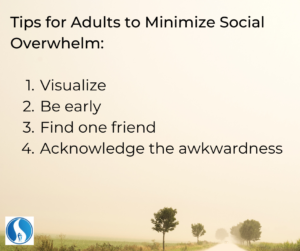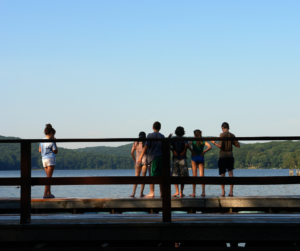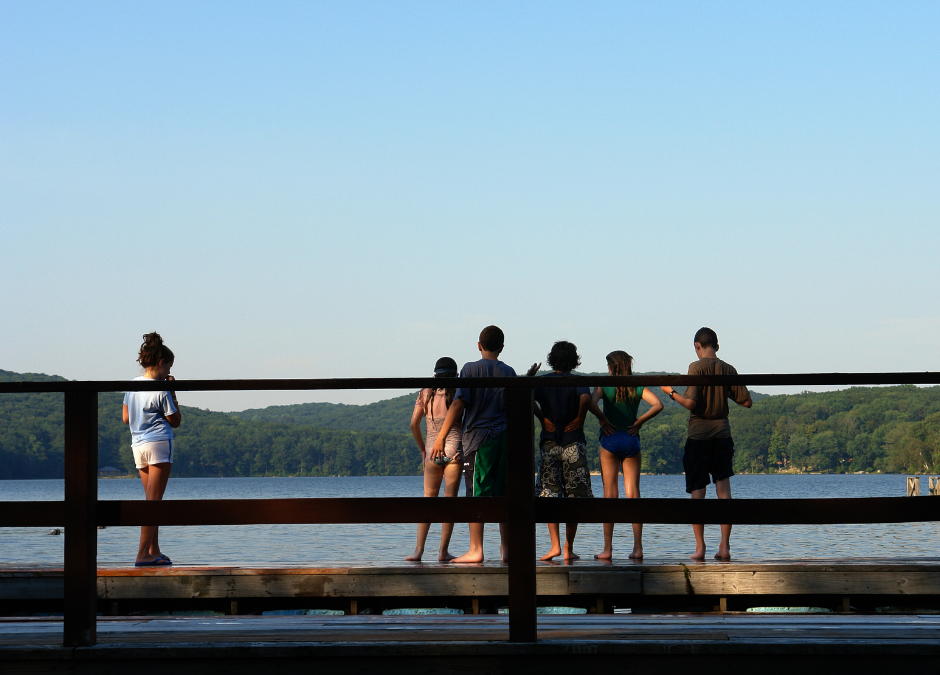In my work with parents and in my conversations with friends, we have discussed preparing for post-pandemic social overwhelm. We acknowledge the importance of being gentle with ourselves, of going slowly as we re-emerge from our sequestered lives at home. I know I have been seeing the same three unmasked faces consistently over this past year: my husband and my two children. I have been seeing clients only virtually. My book club and PTO meet over Zoom. Other than that, I see neighbors and an occasional friend for an outdoor walk.
As the vaccines’ effects start bringing the cases of COVID-19 down, we are starting to see more unmasked faces, have more invitations to small gatherings, or consider outings that seemed utterly unfamiliar over the past year. This summer we may go on a trip or see family members that we haven’t seen. Our children may be able to engage in camps or playdates. We might be receiving messages from the school informing us about procedures and schedules for the next school year. Some families may continue all-virtual, some may choose all in-person, some may shift to or from homeschooling, and some may not be sure yet.
How do you feel about these transitions? How do your children feel?
Recently, even with my awareness of going slowly and being gentle with myself, I jumped right into a multi-day in-person social event. The night before it began, I realized I was going straight into the eye of the storm. And, although I was somewhat aware of this, I did not prepare myself well. I became overwhelmed and had a difficult time engaging.
I share this because both we, as parents, and our children will likely experience some overwhelming feelings as we step outside of our small social circle and comforting home environments.
How can we support ourselves and our children as we step into this next phase?
 In hindsight, what I wish I, as an adult, would have done prior to the “big social event”:
In hindsight, what I wish I, as an adult, would have done prior to the “big social event”:
- Visualize: Visualizations WORK! They work for athletes, public speakers, and many other folks that are anticipating fear or stress.
- Be early: When we show up early, the crowd is smaller, which can be less overwhelming. We can take some time to get grounded and channel our inner “host/hostess”.
- Find one friend: Before showing up at a new event or environment, we can find out if we know anyone that is going. We can go together, plan to meet up, or just look for one another after arriving. Another trick I have used is to find someone there that is alone or seems just as uncomfortable as me. Now we are both alone together!
- Acknowledge the awkwardness: Especially in these early days, we can laugh, commiserate and acknowledge how uncomfortable and strange this transition is. Vulnerability can truly break the ice and bond us.
Now, as for our children, how can we support them as they navigate these transitions back to socializing in larger groups?
- Acknowledge their Strengths: When we feel shaky, it may be difficult to remember our strengths. Identify all of the qualities your child already has.
- Prepare with information: Before we send our child to the new experience, we can prepare them with the schedule, routine, names of participating adults and children, and any other relevant information.
- Prepare with skills: Depending on the child, they may need to have different skills refreshed. Do they need a refresher on breathing exercises when they start to feel worried or uncomfortable? Would they benefit from practicing social skills? How about conflict resolution? Go through the list for adults above.
- Prepare with resources: Our children might benefit from having just the right thing packed in their backpacks. It could be a:
- soft stuffy
- favorite snack
- matching bracelets that connect you
- small packable self-calming item
- Prepare for big emotions: When our child returns from this new experience, we can be mentally and emotionally prepared for a possible meltdown. When they return to us, they feel safe and can often fall apart. How can we, as parents, ease this transition? Here are some suggestions:
- Be present and avoid multitasking
- Bring a snack and/or drink
- Offer a hug
- Allow for silence
- Invite sharing about thoughts and feelings
What else has worked for you, your children, and your family? Let’s support each other through this next phase of the pandemic, as we have done throughout the past year. Please reach out to me with questions, comments, or if you would like to schedule a quick consultation. I am sending you lots of love and grace!


Recent Comments